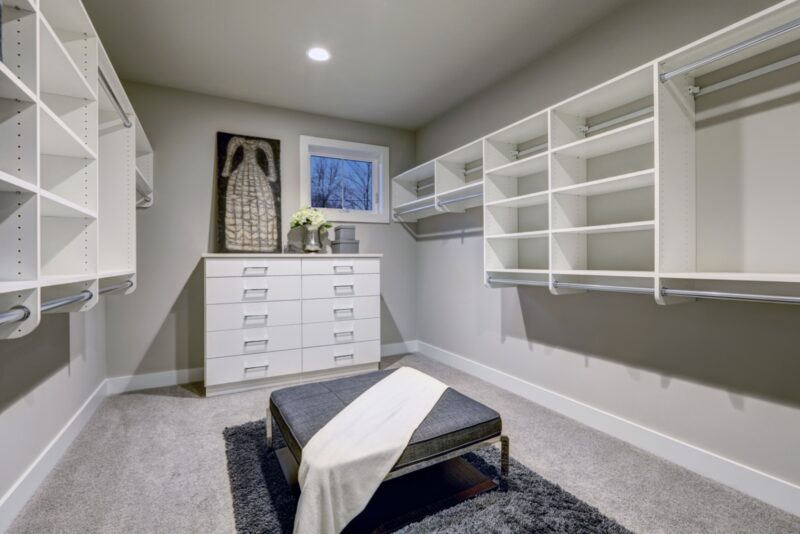California Renovations That Turn Into Nightmares When Done Permit Free

When you’re planning home improvements in California, skipping the permit process might seem like a quick way to save money and time.
However, doing renovation work without proper permits can create serious problems that cost far more than the permit fees ever would. From hefty fines to safety hazards and trouble selling your home later, unpermitted work brings consequences that can haunt you for years.
1. Legal Penalties and Massive Fines Hit Your Wallet Hard
Breaking California’s building laws by renovating without permits isn’t just risky it’s actually illegal. Local governments can slap you with fines that reach thousands of dollars per violation. In Berkeley alone, you could face misdemeanor charges carrying penalties up to $1,000 and even six months behind bars.
Administrative fines add another layer of pain, sometimes hitting $2,500 for each violation. If someone gets injured because of your unpermitted work, that fine can skyrocket to $10,000. These aren’t empty threats either inspectors actively look for unpermitted projects.
Paying these penalties hurts way more than permit fees would have cost initially.
2. Construction Stops Dead Creating Expensive Delays
Picture this: you’re halfway through your dream kitchen remodel when a building inspector shows up and orders everything to stop immediately. Without proper permits, local authorities have full power to shut down your entire project until you fix the situation. This creates a domino effect of problems you never saw coming.
You’ll need to apply for permits retroactively, which takes time and often requires hiring professionals to verify the work meets code. Sometimes you’ll have to tear out completed work and start over just to satisfy requirements.
Contractors might charge extra for the hassle, and your family lives in construction chaos much longer than planned.
3. Insurance Companies Refuse to Cover Your Damages
Here’s something most homeowners don’t realize until disaster strikes: your insurance policy probably won’t pay for problems caused by unpermitted renovations. When you skip permits, you’re essentially voiding protection for that work and anything it affects. If an electrical fire starts from your unpermitted wiring upgrade, you’re stuck paying for everything yourself.
Insurance companies look for reasons to deny claims, and unpermitted work gives them a perfect excuse. Even if the damage seems unrelated, they might argue your renovations contributed to the problem.
You could lose tens of thousands of dollars in coverage right when you need it most.
4. Selling Your Home Becomes a Complicated Mess
California law requires you to tell potential buyers about any unpermitted work before selling your house. Once that disclosure happens, everything gets harder. Buyers often demand huge price reductions or walk away entirely because unpermitted work scares them. Mortgage lenders also get nervous and might refuse to finance the purchase altogether.
You’re basically stuck between three bad choices: sell at a major discount, spend big money legalizing the work before listing, or watch your property sit unsold for months. Some buyers will make offers contingent on you fixing the permit issues first.
What should be an exciting sale turns into a stressful negotiation nightmare.
5. Hidden Safety Hazards Threaten Your Family Daily
Did you know permits exist mainly to keep you safe? When you bypass them, you also skip the inspections that catch dangerous mistakes. Faulty electrical work can spark fires while you sleep. Bad plumbing leads to leaks that grow mold and rot your home’s structure. Structural changes done wrong might cause walls or floors to collapse.
Professional inspectors spot these problems before they hurt anyone, but unpermitted work never gets that safety check. You’re gambling with your family’s wellbeing every single day. Even if nothing bad happens immediately, these hazards lurk in your walls waiting.
Is saving permit money really worth risking lives?
6. Future Permit Applications Face Extra Scrutiny and Rejection
Once local authorities catch you doing unpermitted work, they remember. Your property gets flagged in their system, and every future permit request receives intense examination. Building departments share information, so your history follows you around. They might require extra documentation, more inspections, or even deny permits until you resolve past violations.
This makes simple projects incredibly difficult down the road. Want to add solar panels or build a deck years later? Good luck getting approval quickly when your record shows previous rule-breaking.
That one unpermitted bathroom remodel creates headaches for every home improvement you attempt afterward, making legitimate projects cost more and take longer.
7. Property Tax Assessments Suddenly Jump Higher
Adding square footage or making major improvements without permits doesn’t make your renovations invisible to tax assessors. When they eventually discover the changes and they usually do your property gets reassessed at current market rates. This means your property taxes can jump significantly, sometimes hundreds or thousands of dollars annually. The increase isn’t temporary either; it continues year after year.
Some homeowners think flying under the radar saves money, but tax assessors have ways of finding unpermitted additions. Satellite imagery, neighbor reports, and routine inspections all reveal hidden improvements.
You end up paying more in taxes anyway, minus the legal protection permits would have provided.
8. Forced Removal Means Demolishing Your Completed Work
Imagine spending months and thousands of dollars finishing your perfect home office addition, only to have authorities order you to tear it all down. This actually happens when unpermitted work violates building codes or zoning regulations. Local governments have legal authority to require complete removal of structures built without approval.
You don’t just lose the renovation you also pay demolition costs and disposal fees. The financial loss is staggering: materials, labor, and time all wasted.
Some violations allow remediation instead of removal, but that still means opening walls, redoing work, and paying for multiple inspections.
Either way, you’re spending twice for work that should have been done right initially.
9. Electrical Work Creates Fire Risks and Code Violations
Rewiring outlets or adding new circuits without a permit might seem like a money-saving shortcut. However, electrical work done incorrectly can spark house fires that destroy everything you own. California building codes exist specifically to prevent dangerous situations like overloaded circuits or improper grounding.
When inspectors discover unpermitted electrical changes, they’ll require you to open up walls to verify everything meets safety standards.
This means paying an electrician twice once for the original work and again to fix it properly. Your homeowner’s insurance might even drop your coverage if they find out about unauthorized electrical modifications.
10. Structural Changes Compromise Your Home’s Foundation Stability
Knocking down walls to create open floor plans looks amazing on home improvement shows. But removing load-bearing walls without engineering approval can make your entire house unstable. Ceilings can sag, floors can slope, and in earthquake-prone California, your home might not withstand even minor tremors.
Structural engineers charge thousands of dollars to assess damage from unpermitted modifications. You’ll need to install proper support beams and potentially reinforce the foundation.
Some homeowners have spent over $50,000 fixing structural problems that resulted from a simple wall removal they thought would only cost a few hundred dollars to complete.
11. Plumbing Modifications Lead to Water Damage and Mold Growth
Adding a bathroom or moving plumbing fixtures without permits often results in improper pipe installation. Leaks can hide inside walls for months, creating perfect conditions for toxic mold to spread throughout your home. Black mold causes serious respiratory problems and costs tens of thousands of dollars to remove professionally.
California plumbing codes require specific venting and drainage angles that amateur work rarely achieves. Sewage backups from incorrectly sloped pipes create health hazards and destroy flooring.
When you eventually call a licensed plumber to fix these issues, they’re legally required to report unpermitted work to local authorities, triggering inspections and fines.
12. Room Additions Without Permits Violate Setback Requirements
Building extra rooms seems straightforward until you learn about setback laws. California municipalities require specific distances between structures and property lines to ensure fire safety and neighborhood aesthetics. Unpermitted additions often violate these rules because homeowners don’t research zoning regulations before construction begins.
Neighbors can report violations, forcing you to either tear down the entire addition or apply for costly variances. Some cities won’t grant variances for already-built structures, meaning demolition becomes your only legal option.
Imagine spending $30,000 on a new bedroom only to pay another $10,000 to have it completely removed because it sits three feet too close to your fence line.
13. Garage Conversions Create Parking Compliance Nightmares
Converting your garage into a bedroom, office, or rental unit is incredibly popular in expensive California housing markets. Cities require minimum parking spaces per dwelling unit, and eliminating your garage often puts you below this threshold. Building departments can force you to restore the garage to its original purpose or create replacement parking elsewhere on your property.
Unpermitted garage conversions also typically lack proper heating, insulation, and emergency exits required for living spaces. Fire marshals take these violations seriously because people have died in converted garages during emergencies.
You might face daily fines until you either restore the garage or obtain retroactive permits and make expensive upgrades to current codes.
14. Window and Door Changes Fail Energy Efficiency Standards
Replacing windows and doors without permits might seem harmless since you’re not changing your home’s footprint. California’s Title 24 energy standards require specific U-values and installation methods that maintain your home’s thermal envelope. Improper installation wastes energy and creates uncomfortable drafts that spike your utility bills year-round.
During home inspections for refinancing or sales, appraisers check permit records for major component replacements. Missing permits for windows and doors raise red flags about other potentially unpermitted work.
Lenders sometimes refuse to approve mortgages until homeowners provide documentation proving all modifications meet current building codes, which requires expensive retroactive permitting processes and possible reinstallation.
15. Deck Construction Collapses From Inadequate Support
Backyard decks seem simple to build, but they require precise engineering to support heavy loads safely. California building codes specify foundation depths, joist spacing, and railing heights that prevent catastrophic collapses. Unpermitted decks frequently use inadequate fasteners or shallow footings that fail when filled with people during parties or gatherings.
Deck collapses cause serious injuries and even deaths every year across the state. When accidents happen on unpermitted structures, homeowners face personal injury lawsuits without insurance protection.
Building a deck the right way with permits costs slightly more upfront but ensures your family and guests stay safe while protecting you from liability that could financially ruin you for decades.






